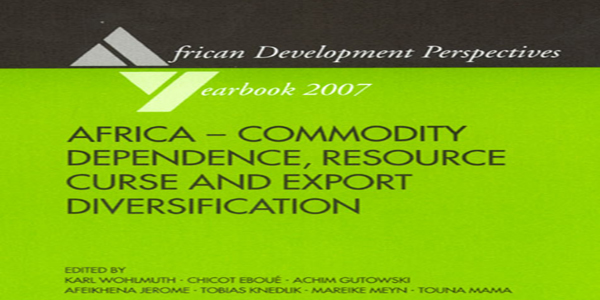- Washington “follows with interest” Morocco’s openness onto Africa (John Kerry)Posted 12 years ago
- The trial of South African Paralympic champion Oscar Pistorius opened in Pretoria on Monday.Posted 12 years ago
- USA welcomes efforts of King Mohammed VI in MaliPosted 12 years ago
- Egypt’s population reaches 94 millionPosted 12 years ago
- Mugabe celebrates his 90thPosted 12 years ago
- Moroccan Monarch to Build a Perinatal Clinic in BamakoPosted 12 years ago
- King Mohammed VI handed a donation of bovine semen for the benefit of Malian breeders.Posted 12 years ago
- Moroccan King’s strategic tour to Africa: Strengthening the will of pan African Solidarity and stimulating the south-south cooperation mechanisms over the continentPosted 13 years ago
- Senior al-Qaida leader killed in AlgeriaPosted 13 years ago
- Libya: The trial of former Prime Minister al-Baghdadi AliPosted 13 years ago
Africa: reducing dependence on Commodities
 “African countries should start broadening their economic capacities by training and education, rather than continuing on their dependence on raw products that would increase their vulnerability to another crisis, which was “not a small threat”. Africa has to consider that a regional integration could make a significant contribution to its economic growth”.
“African countries should start broadening their economic capacities by training and education, rather than continuing on their dependence on raw products that would increase their vulnerability to another crisis, which was “not a small threat”. Africa has to consider that a regional integration could make a significant contribution to its economic growth”.
The United Nations Conference on Trade and Development (UNCTAD) estimates that poor economic performance and rising poverty in least developed countries (LDCs) in Africa are closely linked to place too high share of commodity exports in their economies. Most African LDCs are dependent on a small number of commodities with low added value, such as minerals or agricultural products. This dependency makes them very vulnerable to fluctuations in international markets, especially with falling commodity prices that has occurred in recent years. From 1997 to 2001, copper prices fell 27%, cotton prices by 39% and coffee prices by 66%, dealing a severe blow to the poorly diversified economies of African LDCs. The outlook is better for the LDC oil producers like Angola, Equatorial Guinea and Sudan. In these countries, crude oil prices still boost the economic growth. Countries that perform best are those having areas with very productive commodities and growing market shares. Even the poor Asian LDCs are less dependent on commodities’ exports than LDCs in Africa. This situation contributes to slow the economic growth and exacerbate poverty in these countries, connected to the global economy through complex commercial and financial interdependencies network, vis-à-vis developed countries. Globalization has accentuated “the cycle of poverty in the world”, the study says. But how all this fit together? Because of the strong and consistent dependence vis-à-vis the commodities of low value exports, unfortunately that grows slowly. This leads to an unsustainable external debt, and an even greater dependence vis-à-vis external aid. The result is a weakening of the state capacity, which leads to political instability and conflicts. All this aggravates poverty, weakens businesses and discourages investors, making the country even more dependent on commodities’ exports. Today, an alarm call comes from Uganda, through its Minister of Energy and Mining, Peter Lokeris, who said that illegal mining and smuggling of minerals will continue to cause the instability in African countries, because rebels have found a ready market for their loot with legitimate companies mostly in the West and China, as documented by years of U.N. investigations. Mr. Peter Lokeris believes that establishing peace in countries ravaged by war is a dream, unless the trafficking and sales of minerals are controlled.
